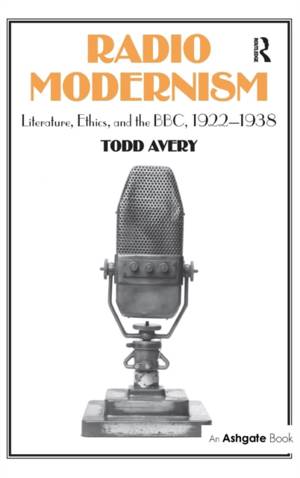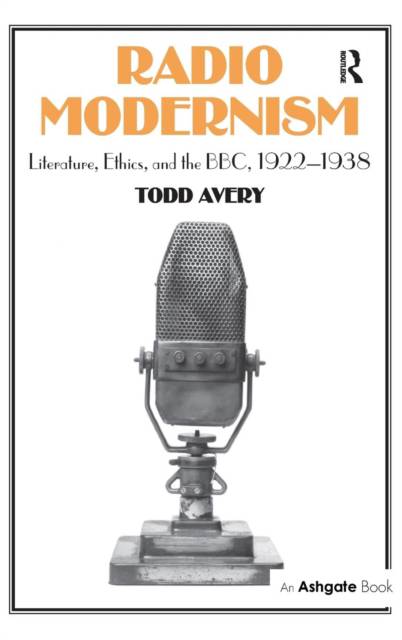
Door een staking bij bpost kan je online bestelling op dit moment iets langer onderweg zijn dan voorzien. Dringend iets nodig? Onze winkels ontvangen jou met open armen!
- Afhalen na 1 uur in een winkel met voorraad
- Gratis thuislevering in België vanaf € 30
- Ruim aanbod met 7 miljoen producten
Door een staking bij bpost kan je online bestelling op dit moment iets langer onderweg zijn dan voorzien. Dringend iets nodig? Onze winkels ontvangen jou met open armen!
- Afhalen na 1 uur in een winkel met voorraad
- Gratis thuislevering in België vanaf € 30
- Ruim aanbod met 7 miljoen producten
Zoeken
€ 290,45
+ 580 punten
Uitvoering
Omschrijving
Radio Modernism marries the fields of radio studies and modernist cultural historiography to the recent 'ethical turn' in literary and cultural studies to examine how representative British writers negotiated the moral imperative for public service broadcasting that was crafted, embraced, and implemented by the BBC's founders and early administrators. Weaving together the institutional history of the BBC and developments in ethical philosophy as mediated and forged by writers such as T. S. Eliot, H. G. Wells, E. M. Forster, and Virginia Woolf, Todd Avery shows how these and other prominent authors' involvement with radio helped to shape the ethical contours of literary modernism. In so doing, Avery demonstrates the central role radio played in the early dissemination of modernist art and literature, and also challenges the conventional assertion that modernists were generally elitist and anti-democratic. Intended for readers interested in the fields of media and cultural studies and modernist historiography, this book is remarkable in recapturing for a twenty-first-century audience the interest, fascination, excitement, and often consternation that British radio induced in its literary listeners following its inception in 1922.
Specificaties
Betrokkenen
- Auteur(s):
- Uitgeverij:
Inhoud
- Aantal bladzijden:
- 166
- Taal:
- Engels
Eigenschappen
- Productcode (EAN):
- 9780754655176
- Verschijningsdatum:
- 28/09/2006
- Uitvoering:
- Hardcover
- Formaat:
- Genaaid
- Afmetingen:
- 156 mm x 234 mm
- Gewicht:
- 412 g

Alleen bij Standaard Boekhandel
+ 580 punten op je klantenkaart van Standaard Boekhandel
Beoordelingen
We publiceren alleen reviews die voldoen aan de voorwaarden voor reviews. Bekijk onze voorwaarden voor reviews.











